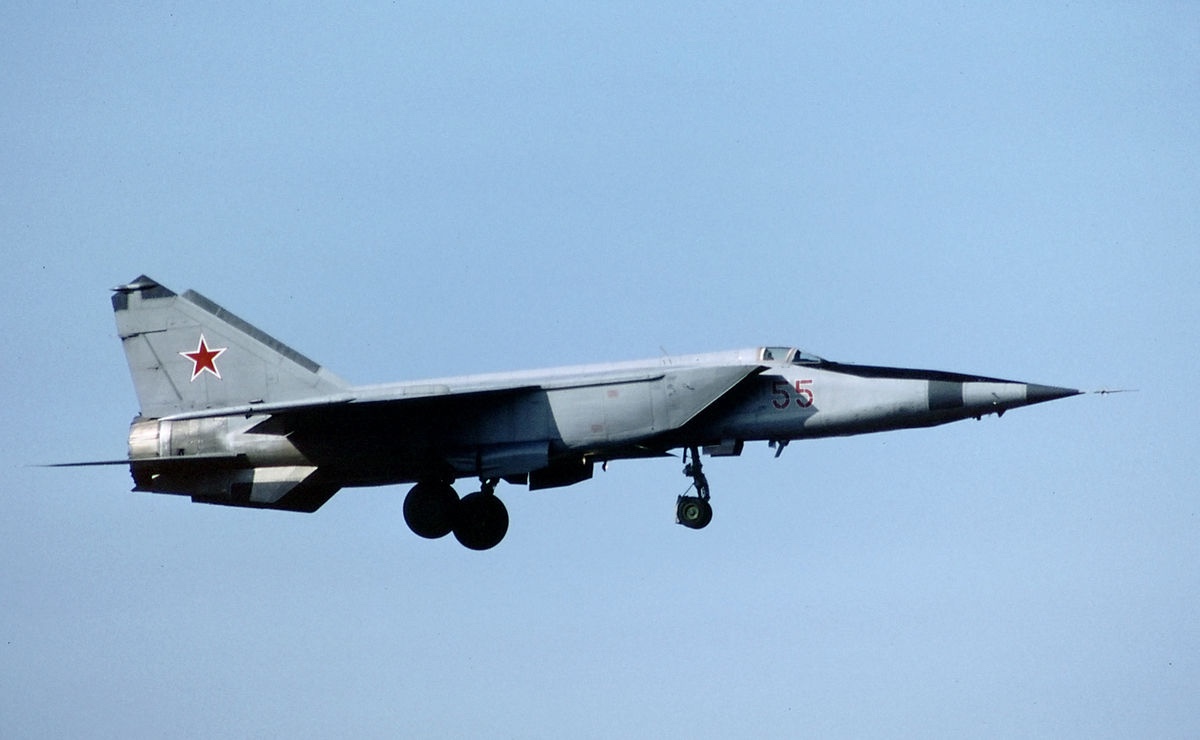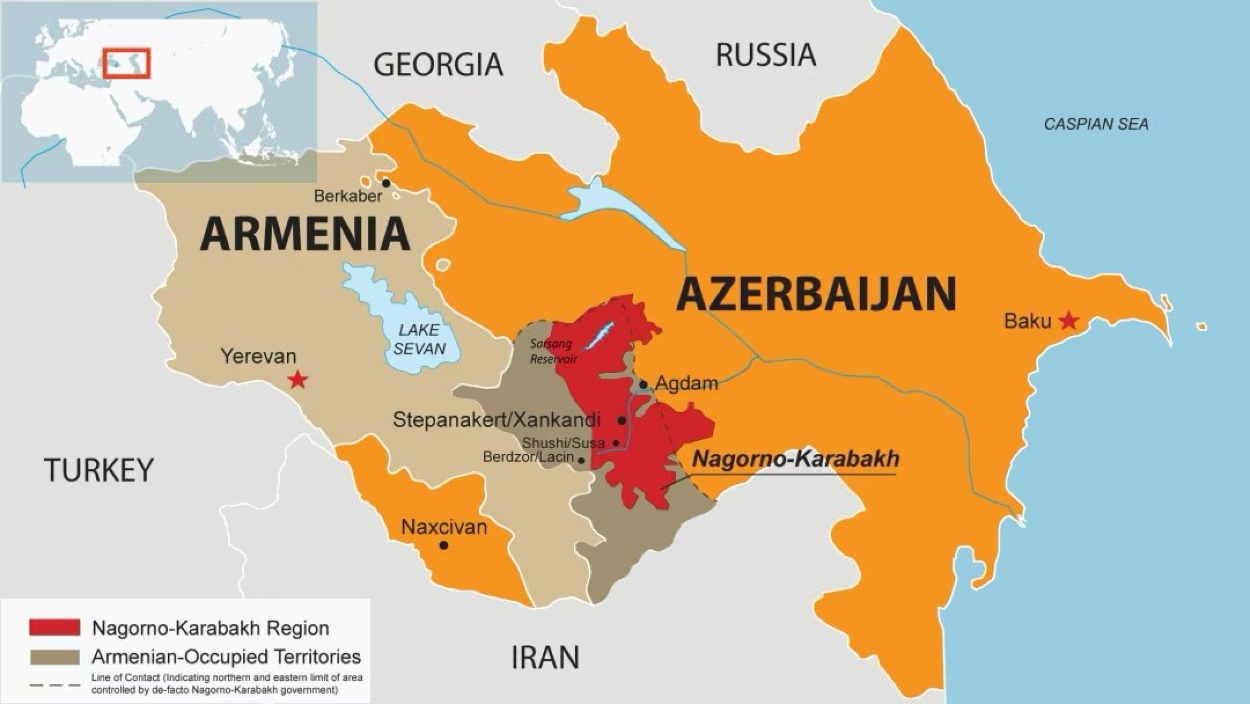Algeria marked seventy years of its ‘November 1 Revolution’ with a massive military parade. Intriguingly, a photo of the event posted to social media revealed an interesting fact: The Algerian MiG-25 is still flying.
Commemorating the day, President Abdelmadjid Tebboune said, “Algeria, which once overcame colonialism, continues its path of victories with confidence.” He emphasized that the Algerian army is committed to preserving Algeria’s sovereignty and promoting global peace and security. He added that Algeria’s weapons are used exclusively for its defense.
Local media reports stated that the military parade showcased an array of ground, naval, and aerial weapon systems, including T-90 tanks, long-range missile-capable submarines, air defense systems, and Su-30 fighter jets. They made no mention of the Soviet-era MiG-25 Foxbat fighters, which were decommissioned two years ago.
However, Tony Osborne, European Defence Editor at Aviation Week, posted a photo of the event, showing two MiG-25s flying in Algeria. “Wow, #Algeria got a couple of its MiG-25s #Foxbat flying again to help celebrate the November 1 Revolution. It was thought these had been retired, as they were the last MiG-25s operational anywhere in the world. Algerian MoD, please hold a MiG-25 spotters day,” he wrote in a post on X (formerly Twitter). Later, a couple of videos showing the aircraft in flight were also published on social media by other military bloggers.
The MiG-25 is a supersonic interceptor and reconnaissance aircraft, still counted among the fastest military aircraft in the world. It was equipped with four air-to-air missiles and a potent radar. Notably, the Foxbat still holds the world record for the highest altitude reached, at 38 kilometers.
The Mig-25 was among the most complex aircraft in the world during the Cold War and, yet, undeniably, one of the most advanced at the time.

Algeria was the first export customer for the MiG-25 and the last known operator to retire the aircraft. Starting in 1979, the country received at least 36 MiG-25s, comprising at least 18 MiG-25P interceptors, 10 MiG-25RB reconnaissance/strike aircraft, and six operational conversion trainers.
The first of eight MiG-25Ps, three MiG-25Rs, and two MiG-25PUs were already on display in public at the 25th-anniversary celebrations of the Algerian revolution on November 1, 1979.
Despite never experiencing combat, Algerian Foxbats participated in several “combat-like” activities. The warplanes flew Combat Air Patrols (CAPs) at the Palestinian Liberation Organisation’s (PLO’s) Congress in Algeria in 1988.
Additionally, during the 1980s, when tensions were high with Morocco and Spain, Algerian Foxbats frequently swept the western Mediterranean basin to the Atlantic Ocean thanks to their long ranges, extremely high altitudes, and high speeds.
At the time, neither of these two countries had the resources to pose a serious threat to the Soviet-built jets. Additionally, the MiG-25Rs conducted multiple surveillance missions in the fight against Islamic radicals as early as 1986.
Despite Algeria’s modernization of its MiG-25s with fourth-generation avionics in the 1990s, the aircraft lost its elite status to the Su-30MKA fighters, which were ordered from Russia in 2020. The Su-30 had apparently surpassed the Foxbat in most performance metrics and required significantly less maintenance.
Algeria finally decommissioned its last squadron of MiG-25 fighters in July 2022. According to previous reports, the aircraft made its last flight on the occasion of the country’s 60th Independence Day. At this point, it is not clear why the aircraft took to the skies or whether some of these archaic fighters are still operational.

The rest of the flypast on the occasion, as seen in the pictures, was dominated by the Su-34 Fencer aircraft. At least 15 Fencers flew in a formation of ’70’ to commemorate the 70th anniversary of the revolution. The more advanced Su-30 and MiG-29 were also spotted flying in Algerian skies, along with the presidential flight A340-500 and Gulfstream G550.
Algeria has about 70 Su-30 fighters, 39 MiG-29s, and 42 Su-24 Fencers in its arsenal. With cutting-edge fighter jets, like the Su-30 in its arsenal and Su-57 “allegedly” on order, the presence of retired MiG-25 Foxbats in the ‘November 1 Revolution’ anniversary has become particularly intriguing.
70 Years Since Algeria’s November 1 Revolution
Algeria was annexed in 1834 and was seen as an inalienable part of France. Under French rule, the African country was divided into administrative départements. The Algerian nationals, however, wanted independence.
The independence movement started during World War I (1914–18) and gathered steam following World War II (1939–45) when French promises of increased Algerian autonomy were not realized. After the Second World War ended, the country was rocked by protests from nationalists demanding independence.
The European colonists were a minority in the country—1 million out of a total population of 9 million—yet they were fiercely opposed to the creation of an Islamic Algerian Republic. Thus, an amicable settlement to the issue was ruled out, and a revolution against French Colonialism was launched in the country by the National Liberation Front (FLN), which was the principal nationalist movement during the Algerian War.
On November 1, 1954, a string of attacks shook Algeria– marking the first move by the National Liberation Front (FLN)–which launched a guerrilla war against France in 1954. The FLN also applied for UN diplomatic recognition to create an independent Algerian state.
While the Algerian fighters operated in the countryside, especially around the country’s frontiers, the most intense fighting occurred in and around Algiers, where FLN forces conducted a series of severe urban raids that became known as the Battle of Algiers (1956–57).
The fierce battle drained the French political resolve to prolong the war, and French forces (which grew to 500,000 troops) were only able to recover control through cruel means.
The harshness of the French military’s tactics alienated support in metropolitan France, damaging the French reputation overseas and failing to win hearts and minds in Algeria.
The French populace gradually became disenchanted with the conflict as it continued, and several of France’s most important allies, including the United States, stopped backing France and instead abstained from the UN debate on Algeria.
After years of intense combat, Charles de Gaulle gave in and announced that the Algerians had the right to determine their future. Algeria finally gained independence in 1962 despite terrorist attacks by anti-independence French Algerians and a failed coup attempt by sections of the French Army in France.
As it stood later, the November 1 Revolution changed the destiny of the African country that had been under the control of Western colonists for more than a century.
- Contact the author at sakshi.tiwari9555 (at) gmail.com
- Follow EurAsian Times on Google News




